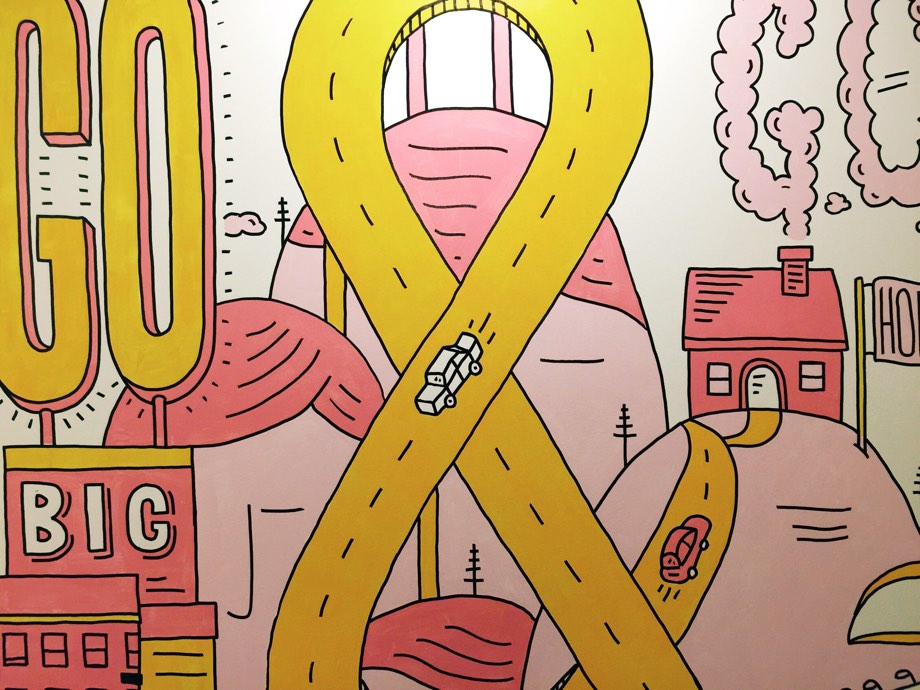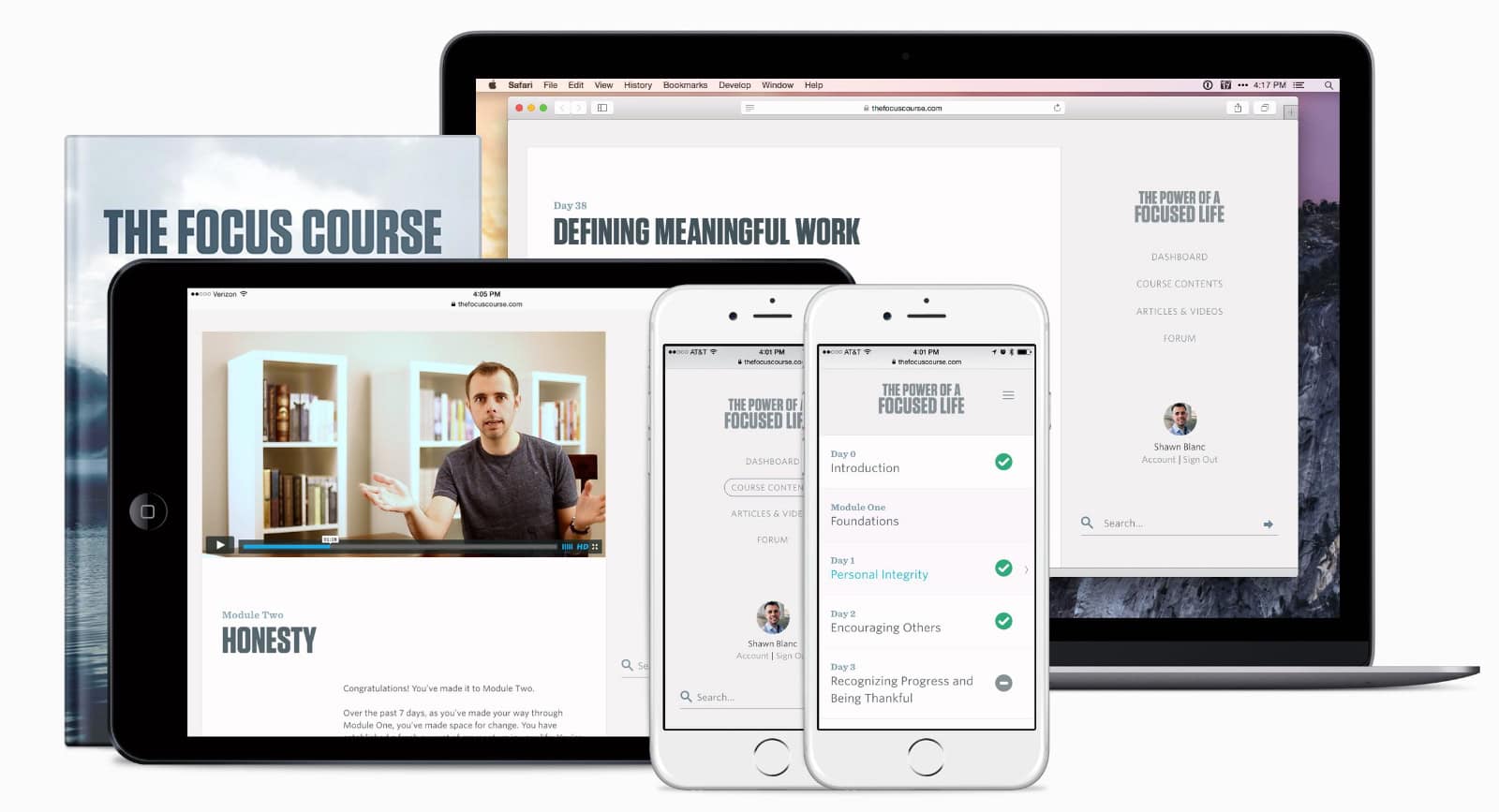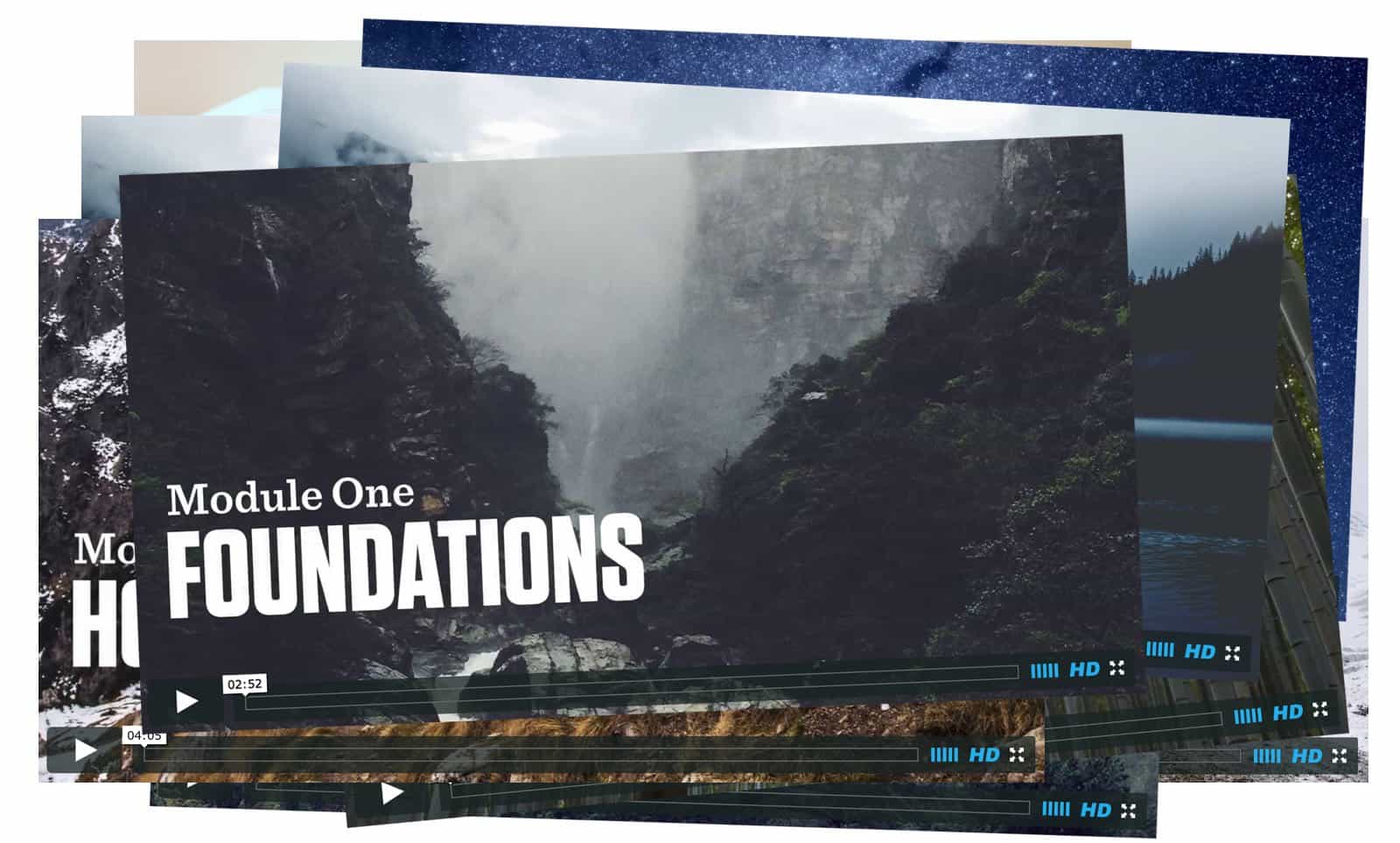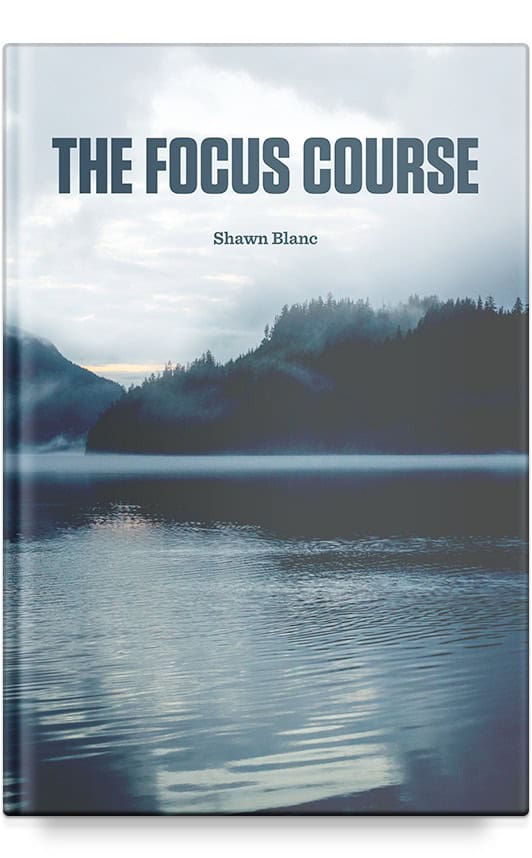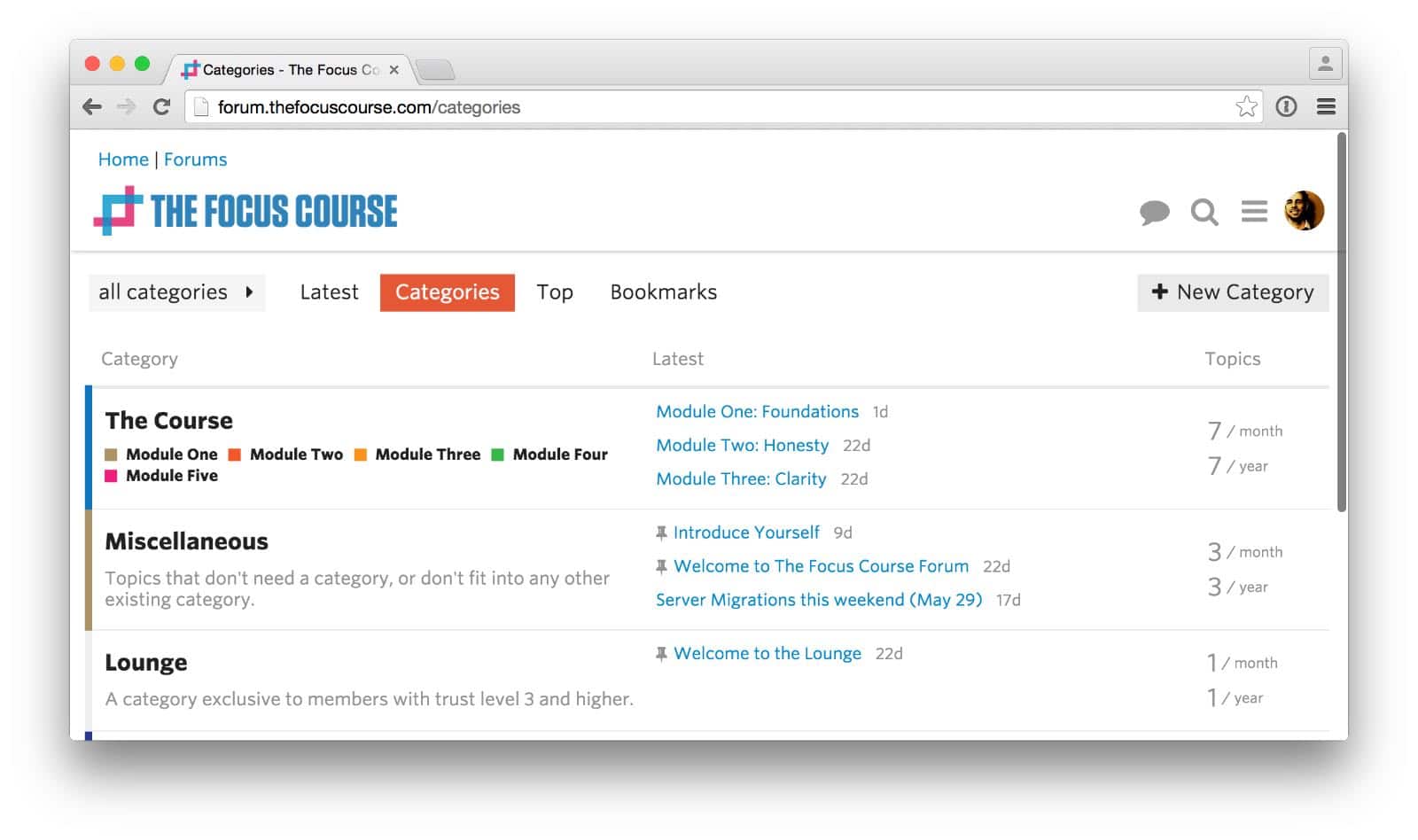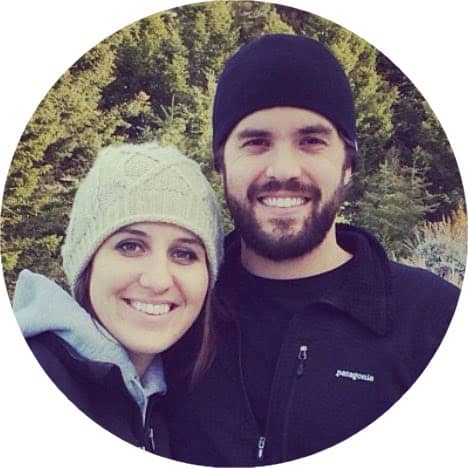Two years ago I launched my first real product.
I remember waking up the morning of the launch and feeling sick. I didn’t have the flu. I was scared. There was a big knot in the pit of my stomach. I felt like a fraud. I was afraid people would buy my book, read it, and feel ripped off.
The book I’m talking about is Delight is in the Details.
On the day I was to put it up for sell all I could think about was how I felt like a fraud and an imposter. I was scared that I was charging for something that should be free. In short, I wasn’t confident that the value of the book was greater than the price I was charging.
Who was I, I thought, to make something and then ask people to give me money for it? I didn’t trust my ability to create something of value.
It was such a bizarre feeling. I chose to ignore it and stick with my plan. I put Delight is in the Details up for sale when I said I would and I didn’t lower my price.
Delight is in the Details has since gone on to sell more than 2,000 copies. I have heard from so many people who have read the book, listened to the interviews, and have been inspired. I’ve even gone back and referenced my own writing from the book multiple times, to re-take my own advice and remind myself of those values and ideas.
* * *
Over the past two years, I’ve thought a lot about that day and those feelings: the fear, doubt, and even the shame that can accompany a product launch. Here you’ve got this thing that you’ve created for someone else, and you’re trying to assign a value to it. It’s not easy to do.
But since that initial product launch two years ago, I’ve since had two more times through a launch: last summer (2014) I published a big update to Delight is in the Details, and then a couple weeks ago I published The Focus Course.
Here’s an interesting data point: I charged more each product. In part because I learned how to add more and more value, but also because I learned to trust my ability to create something of value.
If you’ve got a product you’re trying to assign a value to, here’s something to consider:
Your product has three adjustable numbers: Cost, Price, and Value.

Cost is the time and money it takes to make the product.
Price is what you sell the product for. (Assuming it’s higher than your cost, then the difference is your profit.)
Value is what your product is worth in the eyes of the people who buy it.
These three numbers must be in balance.
Your price has to be more than your cost so you can make a profit. But you also want your price to be less than the product’s value so the people who buy from you are getting something worthwhile.
This is why pricing is an art, not a science. You need to make a sustainable and worthwhile profit from your product. But you also want to provide as much additional value as possible.
In my experience, there are two ways to adjust my cost/price/value ratios in order to have a price that is sustainable for me while also being fair to the people who buy my products.
- First is to cut your costs in a way that doesn’t simultaneously sacrifice value or quality. Sometimes this is as easy as not wasting money on trivial minutia. Sometimes it requires thinking outside the box, working smarter, finding better help, scaling your production to get price breaks, or cutting out features that maybe can wait until a future update.
-
Second is to add value in a way that doesn’t unnecessarily or dramatically increase complexity or cost. I think one of the best ways to do this is by sweating the details. When you add empathy and delight to your product and the experience surrounding it, then the people who use it feel honored and excited.
The packaging that an Apple product comes in is an excellent example of both empathy (the boxes are easy to open and unpack) and delight (the boxes are high quality and well designed). It’s one of many ways Apple adds value to their products without dramatically increasing the cost to make the product.
* * *
Here I’m going to share my own examples of how I did this, by sharing what I did to add value to The Focus Course. I’m using the Focus Course because it’s a real-life example that’s still very fresh in my mind.
I’ll first share about the real costs associated with the course, what I did to make the course as valuable as possible, and then where and why I landed on for the price.
Cost
For me, The Focus Course has two costs associated with it: the initial cost of building it and ongoing cost of running it.
I spent at least 1,500 hours (and probably more) of my own time to research, write, and architect the course. I also invested $9,600 to pay for the design, development, videos, editing, research material, and a few other miscellaneous odds and ends.
The second cost is the ongoing expense of keeping the course going. I pay for hosting the website (Flywheel), the webfonts (Hoefler & Co.), the SSL cert and domain registration, the video and media files (Vimeo Pro; Amazon S3), the forum (Discourse & Digital Ocean), the email servers (Mandrill and MailChimp), and the membership service and payment gateway (Memberful).
All in all, the services which power the Focus Course cost $211 / month to run. And the more people who sign up for the course, the more these monthly expense go up. This is certainly not a massive expense right now, but neither is it insignificant.
Additionally, I have to be able to pay a designer / developer for any updates, changes, or improvements to the website.
All this may sound like a lot when it’s listed out, but actually I think it’s quite reasonable. The moving parts all fit together quite nicely to make an overall awesome product that I’m proud of and that I believe is sustainable to maintain.
Value
The big question I kept asking myself over and over was this: How can I make The Focus Course as valuable as possible?
In fact, it was this question that led me to build the course in the first place. As you may know, The Power of a Focused Life was originally going to be a book. But once I finished the initial draft of the book, and I began to read other books for research, I discovered that so many of important actionable items within these books were mostly buried underneath all the ideas and theory. I realized that my own book was suffering from the same fate, and so by asking myself how I could make the product more valuable I realized that it needed to be something other than a book.
Then, as the course began to take shape and I decided that I wanted to charge $250, I knew that I needed to build something that looked and worked like a $500 product and had the foundational content of a $1,000 product.
Basically, when people sign up, I want them to instantly feel as if they’ve already gotten more than they paid for. I want them to feel excited and refreshed. And then, by the time they finished the course, I want them to feel an even greater satisfaction — that they got what they were looking for and more.
It is critical to me that the value of the Focus Course be far greater than its price.
The foundation of the course’s value is, obviously, the content itself. There are 40 days of assignments and lessons, and if those 40 days don’t flow well and offer something of substance, then the rest doesn’t matter. And, fittingly, this is where I spent the bulk of my time and energy. Then, once I had the course outlined and written, I worked with nearly 100 “beta” testers to go through it and get their feedback on the contents alone.
The early pilot version of the course was ugly. And when I say “ugly” what I mean is “ugly.” I sent out ugly looking emails every day and I had a generic WordPress theme. It was just the raw content of the course with nothing to hide behind.
But once I knew that the content itself was right, then I got to work sweating the details.
And so, in addition to the content, there were a few other things I set up to add additional value to the course.
- Design: I wanted everything about the course to be beautiful, readable, unique, professional, and responsive. Not only does a well-designed product feel more professional and high-quality, but I also wanted to use design as a competitive edge. There are other similar types of products out there and I wanted the Focus Course to be the best-looking.
-
Community: Having a thriving community forum that’s filled with other people going through the course is a massive value. It provides accountability, encouragement, help, and just a great sense of camaraderie.
-
All the little details: everywhere I could I tried to add fun extras. This includes a friendly welcome video when you first sign up, a welcome page and email that tells you everything on the website, personal follow up emails to check in on, an easy sign-up process with single sign on for the course and the forums, as well as some really fun easter eggs you naturally discover once you start the course.
Price
One of the hardest aspects to building the Focus Course was coming up with a price. I went back and forth with all sorts of different numbers.
I wanted to charge an amount that was fair to those who bought the course — making sure the value given exceeds the price they paid. But I also needed to charge enough to make back the time and money initially invested, as well as being able to cover the ongoing costs of hosting the course.
Moreover, by charging a fair price, I can do more than just maintain the course, I can keep working on it and adding more value. I already have a clear roadmap for the next update.
I’ll also add that by charging a fair price relative to the content and commitment required, it means the people who buy The Focus Course have something invested in it. If I were to charge $5 then people would value the course as something about on par with a latte.
However, by charging $250, people see the course for what it actually is: something incredibly valuable that requires sacrifice. Which means those who do sign up are far more likely to actually to commit the time an energy needed to work their way through the 40 days.
You can’t buy word of mouth
When the value of what you’re selling is more than the price you’re charging for it, people who buy your product feel honored. (Conversely, if the value is at or below the price, people feel ripped off or cheated.)
When you sweat the details and add empathy, joy, and delight into your product then it makes people feel happy and excited.
And who doesn’t want happy, honored people as customers?
